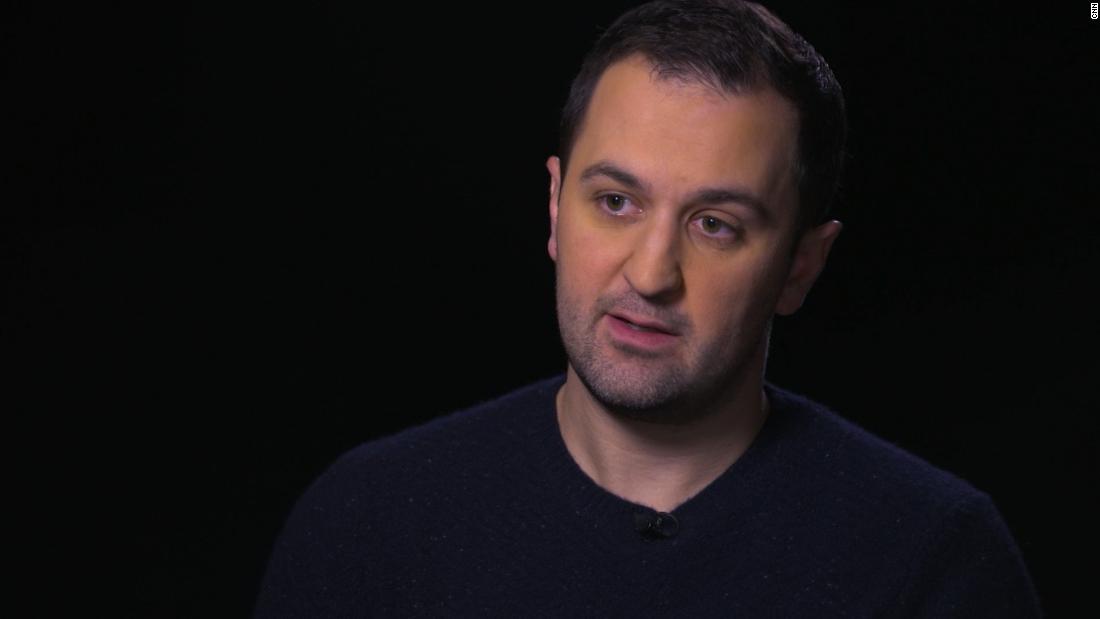
In a recent interview with CNN's Poppy Harlow, Zimmer reflected on his company's biggest rival: Uber.
Harlow asked Zimmer during the latest episode of Boss Files whether there's anything he admires about Uber, which could reportedly be valued as high as $120 billion when it goes public later this year.
"I think I'm going to say 'no,'" Zimmer said. "It would be hard for me to say anything but that."
While Uber's aggressive, growth-at-all-costs tactics have been widely chronicled in the press over the years, Lyft has basked in the public perception that it is the friendlier ride-hailing alternative.
"We're in a time where it's more interesting to hear about people that are maybe jerks, to say it mildly. But, I would argue ... treating people well is the right thing to do, and, it's also good for business," Zimmer said.
The term "jerks" echoes language used by Uber board member Arianna Huffington in her critique of Uber's toxic culture, circa early 2017. Huffington declared there would be "no brilliant jerks allowed" at Uber following former engineer Susan Fowler's very public allegations of systemic harassment and sexism at the company.
Fowler's allegations resulted in a company-wide investigation into its culture, which led to an exodus of employees and executives, including cofounder and CEO Travis Kalanick. Kalanick was replaced with Dara Khosrowshahi in August 2017.
Speaking about Uber under Khosrowshahi, Zimmer said: "At least they've polished the image. I don't know how deep it goes. I don't work there so I don't think it's fair for me to comment."
Lyft, of course, has had its own struggles, including with the safety of drivers and passengers.
In January, a Lyft driver in her third trimester of pregnancy was fatally stabbed by a passenger who then stole her car. Zimmer told Harlow the company has "taken multiple steps from the beginning on protecting both sides: drivers and passengers." However, he didn't offer up much by way of what the company could have done differently to prevent such a tragedy.
On the topic of safety, Zimmer claimed that Lyft is working together with Uber to be more transparent about incidents of sexual assault that occur on its platform. In the wake of a CNN Business investigation published last April that reported on the number of Uber and Lyft drivers who have been accused of sexually assaulting or abusing passengers, both companies pledged to release safety transparency reports.
Uber released its taxonomy, authored by staff at the National Sexual Violence Resource Center and the Urban Institute, for categorizing sexual misconduct, sexual assault and rape in November, which it says similar companies can use for their own reports. It says it will release its safety transparency report sometime in 2019.
It's unclear if Lyft is simply applying Uber's taxonomy to its own internal data.
Lyft's "nice guy" image has been put to the test at other times in recent months: It has gone on the offensive as it forges its path toward going public.
The company filed a lawsuit against New York City just days before a new minimum-wage law for drivers went into effect on February 1. Lyft argued that the formula for determining the pay is flawed and unfairly advantages: Uber.
"The intention of the policy was good. The implementation and effects of it are concerning," Zimmer told Harlow. He stressed that while the legal battle with NYC continues on, Lyft has increased the rates for drivers on a weekly basis, not on a per trip basis, which the company believes is more fair.
Last week, news surfaced that Zimmer and fellow Lyft cofounder, Logan Green, are reportedly preparing to issue themselves so-called supervoting shares, which would give them more control over the company's future (and their own) when it goes public. The same practice has been used by companies including Facebook and Snap.
Lyft was most recently valued at $15 billion and is reportedly seeking a valuation of around that price when it goes public.
According to consumer analytics firm Second Measure, Uber accounted for 69% of US rideshare spending in January, whereas Lyft captured 29%of the market. Second Measure analyzes billions of anonymized credit and debit card purchases from US consumers. Compared to January 2018, Uber's market share is down 2 percentage points, and Lyft's has increased by 3 percentage points.
Zimmer declined to share details surrounding the IPO, including the company's timeline, but said he believes "going public brings a certain amount of proper accountability to businesses."
While the company is competitive, Zimmer said he's not stressed about whether Uber will beat Lyft to an IPO or vice versa.
"Of all the things that we've faced over the last six years, this is not something I'm concerned about," he said.
No comments:
Post a Comment